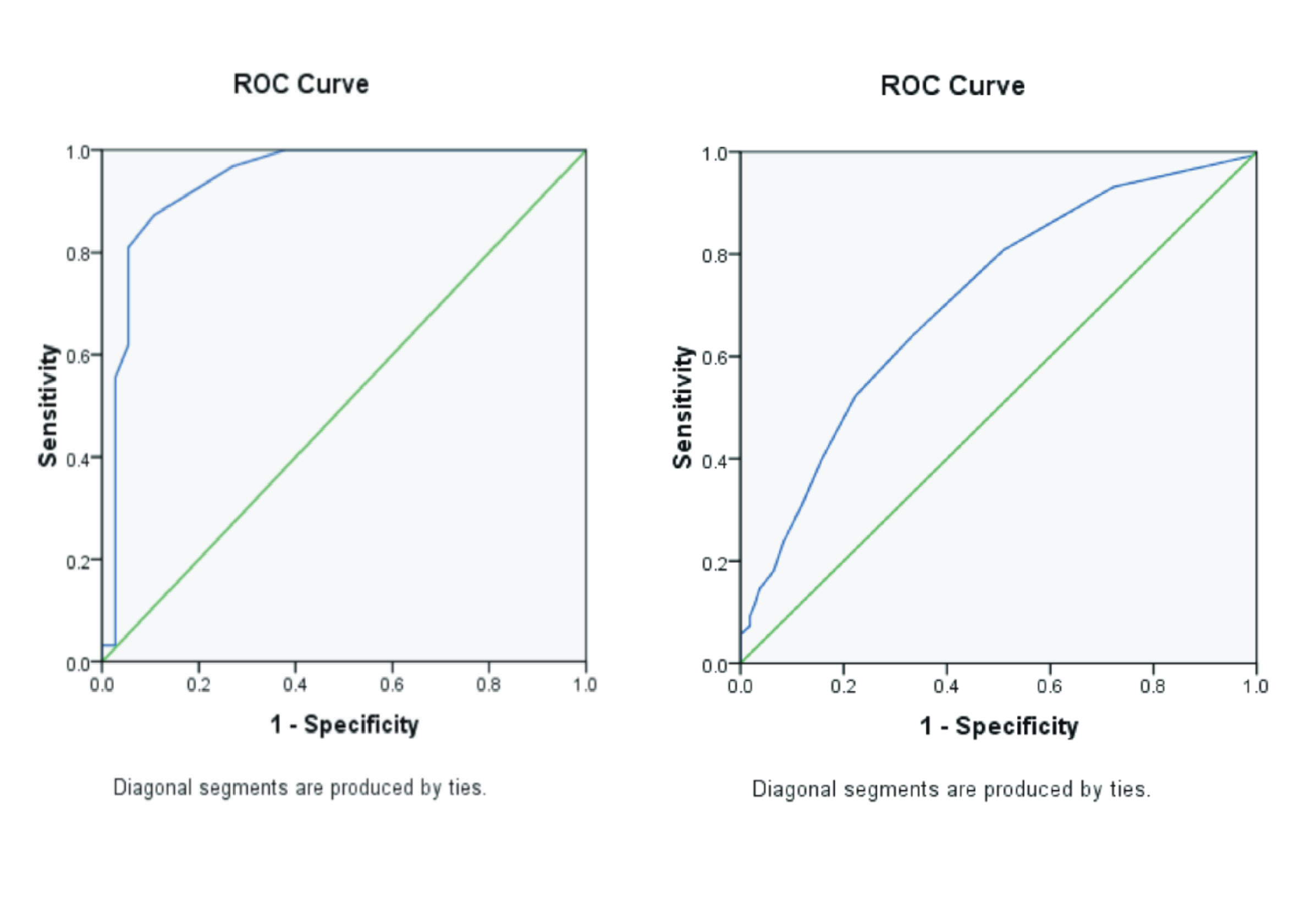POTENCY OF SOURSOP LEAF EXTRACT AND CURCUMIN WITH MAGNETIC AND MUCUS-PENETRATING NANOPARTICLE AS COLORECTAL CANCER ALTERNATIVE THERAPY

Downloads
Background: Colorectal cancer is the second leading cause of death in the world. Currently,resection and adjuvant chemotherapy are the main therapies for colorectal cancer. Resection is an invasive procedure and chemotherapy often causes side effects due to non-specific work targets. Purpose: This study examines the potential of soursop leaf extract and curcumin with magnetic and mucus-penetrating nanoparticles as an alternative therapy for colorectal cancer. Review: Soursop leaf extract has acetogenin agent as an anti-tumor, anti-inflammatory, and cytotoxic agent that acts specifically on target organs. Curcumin from turmeric extract has antioxidant, anti-inflammatory, antimutagenic, antiangiogenic, and anticancer effects. Curcumin works molecularly on cyclooxygenase-2 (COX-2) to prevent inflammation, thereby inhibit the growth of cancer cells and reducing the risk of metastasis. Curcumin also plays a role in the inhibition of nuclear factor κ-light-chain-enhancer of activated B (NF-κB) cells, thus inhibits carcinogenesis. For drug delivery, magnetic nanoparticles and mucus-penetrating nanoparticles could be used. The magnetic field of magnetic nanoparticles generates force and torque to increase the temperature and movement of the organelles, so that apoptosis occurs from cancer cells. Mucus-penetrating nanoparticles are more resistant to mucus degradation because they can avoid mucoadhesive effects, penetrate the mucus adherent layer, and are easily absorbed by the intestinal epithelium. Conclusion: Soursop leaves, curcumin, magnetic nanoparticles, and mucus-penetrating nanoparticles are potential to be an alternative therapy for colorectal cancer.
Chen, L., Chen, C., Wang, P., Song, T., 2017. Mechanisms of Cellular Effects Directly Induced by Magnetic Nanoparticles under Magnetic Fields. J. Nanomater. Pp. 1-13.
Chung, S.S., Dutta, P., Chard, N., Wu, Y., Chen, Q.-H., Chen, Guanglin, Vadgama, J., 2019. A Novel Curcumin Analog Inhibits Canonical and Non-Canonical Functions of Telomerase Through STAT3 And NF-Κb Inactivation in Colorectal Cancer Cells. Oncotarget Vol.10(44), Pp. 4516–4531.
Cisterna, B.A., Kamaly, N., Choi, W.I., Tavakkoli, A., Farokhazad, O.C., Vilos, C., 2016. Targeted Nanoparticles for Colorectal Cancer. Nanomedicine Vol.11(18), Pp. 2443-2456.
Giordano, A., Tommonaro, G., 2019. Curcumin and Cancer. Nutrients Vol.11(10).
Greil, R., Greil-Ressler, S., Weiss, L., Schonlieb, C., Magnes, T., Radl, B., Bolger, G.T., Vcelar, B., Sordilo, P.P., 2018. A Phase 1 Dose-Escalation Study on The Safety, Tolerability and Activity of Liposomal Curcumin (Lipocurctm) in Patients with Locally Advanced or Metastatic Cancer. Cancer Cheomother Pharmacol. Vol.82(4), Pp. 695-706.
Guo, T., Lin, M., Huang, J., Zhou, C., Tian, W., Yu, H., Jiang, X., Ye, J., Shi, Y., Xiao, Y., Bian, X., Feng, X., 2018. The Recent Advances of Magnetic Nanoparticles in Medicine. J. Nanomater. Pp. 1-8.
Hashemzehi, M., Behnam-Rassouli, R., Hassanian, S.M., Moradi-Binabaj, M., Moradi-Marjaneh, R., Rahmani, F., Fiuji, H., Miramadi, M., Jamili, M., Boromand, N., Piran, M., Jafari, M., Sahebkar, A., Avan, A., Khazaei, M., 2018. Phytosomal Curcumin Inhibits Tumor Growth in Colitis-Associated Colorectal Cancer. J. Cell. Biochem. Vol.119(7), Pp. 5996-6007.
Hewlings, S.J., Kalman, D.S., 2017. Curcumin: A Review of Its Effects on Human Health. Foods Vol.6(92), Pp. 1-11.
Indrawati, L., Ascobat, P., Bela, B., Abdullah, M., Surono, I.S., 2017. The Effect of An Annona Muricata Leaf Extract on Nutritional Status and Cytotoxicity in Colorectal Cancer: A Randomized Controlled Trial. Asia Pac. J. Clin. Nutr. Vol.26(4), Pp. 606-612.
Indrawati, L., Simbolo, Y., 2018. Efek Pemberian Ekstrak Daun Sirsak terhadap Gambaran Histopatologi Kolon Mencit sebagai Hewan Model Kanker Kolorektal. Bunga Rampai Saintifika (7), Pp. 91-95.
Jabalera, Y., Garcia-Pinel, B., Ortiz, R., Iglesias, G., Cabeza, L., Prados, J., Jimenez-Lopez, C., Melguizo, C., 2019. Oxaliplatin – Biomimetic Magnetic Nanoparticle Assemblies for Colon Cancer - Targeted Chemotherapy: An in Vitro Study. Pharmaceutics Vol.11(8), Pp. 1-19.
Juliane, A., Mahlert, L., Mulac, D., Langer, K., 2018. Mucus-Penetrating Nanoparticles: Promising Drug Delivery Systems for The Photodynamic Therapy of Intestinal Cancer. Eur. J. Pharm. Biopharm. Vol.129, Pp. 1-9.
Karlowicz-Bodalska, K., Han, S., Freier, J., Smolenski, M., Bodalska, A., 2017. Curcuma Longa as Medicinal Herb in The Treatment of Diabet-IC Complications. Acta Pol. Pharm. Vol.74(2), Pp. 605-610.
Lu, L., Chen, G., Qiu, Y., Li, M., Liu, D., Hu, D., Gu, X., Xiao, Z., 2016. Nanoparticle-Based Oral Delivery Systems for Colon Targeting: Principles and Design Strategies. Sci. Bull. Vol.61(9), Pp. 670-681.
Netsomboon, K., Andreas, B.-S., 2016. Mucoadhesive Vs. Mucopenetrating Particulate Drug Delivery. Eur. J. Pharm. Biopharm. Vol.98, Pp. 76-89.
Nikmah, L.M., 2019. Efek Ekstrak Etanol Rimpang Kunyit (Curcuma longa) terhadap Struktur Histologi Rektum Tikus Putih (Rattus norvegicus) yang Diinduksi Dextran Sodium Sulphate (DSS). Universitas Jember.
Popov, A., Enloe, E., Bourassa, J., Chen, H., 2016. Mucus-Penetrating Nanoparticles Made With "Mucoadhesive” Poly(Vinyl Alcohol). Nanomedicine Nanotechnology. Nanomedicine Vol.12(7), Pp. 1863-1871.
Qazi, A.K., Siddiqui, J.A., Jahan, R., Chaudhary, S., Walker, L.A., Sayed, Z., Jones, D.T., Batra, S.K., Macha, M.A., 2018. Emerging Therapeutic Potential Of Graviola And Its Constituents In Cancers. Carcinogenesis. Carcinogenesis Vol.39(4), Pp. 522-533.
Rajitha, B., Belalcazar, A., Nagaraju, P. anji, Shaib, W.L., Snyder, J.P., Shoji, M., Pattnaik, S., Alam, A., El-Rayes, B.F., 2016. Inhibition of NF-Κb Translocation by Curcumin Analogs Induces G0/G1 Arrest and Downregulates Thymidylate Synthase in Colorectal Cancer. Cancer Lett. Vol.373(2), Pp. 277-233.
Setyorini, H.A., Addiena, K.A., Adelina, R., Winarsih, W., 2016. Karakterisasi Mutu Ekstrak Daun Sirsak (Annona muricata L.) dari Tiga Tempat Tumbuh. Bul. Penelit. Kesehat. Vol.44(4), Pp. 279-286.
Shan, C. yuan, Iskandar, Y., 2018. Studi Kandungan Kimia dan Aktivitas Farmakologi Tanaman Kunyit (Curcuma longa L.). Farmaka Vol.16(2).
Soekaryo, E., Simanjutak, P., Setyahadi, S., 2016. Uji Inhibisi Enzim Siklooksigenase-2 (COX-2) dari Ekstrak Daun Sirsak (Annona muricata Linn.) sebagai Antiinflamasi. In: The 4th Univesity Research Coloquium. Universitas Muhammadiyah Surakarta, Pp. 485-492.
Sulistyoningrum, E., Rachmani, N., Prasasti, K., Baroroh, H.N., 2017. Annona Muricata Leaves Extract Reduce Proliferative Indexes And Improve Histological Changes In Rat's Breast Cancer. J. Appl. Pharm. Sci. Vol.7(1), Pp. 149-155.
Tong, W., Wang, Q., Sun, D., Suo, J., 2016. Curcumin Suppresses Colon Cancer Cell Invasion Via AMPK-Induced inhibition of NF-κB, uPA Activator and MMP9. Oncol. Lett. Pp. 4139-4146.
Uzzan, B., Benamouziq, R., 2016. Is Curcumin a Chemopreventive Agent for Colorectal Cancer? Curr. Colorectal Cancer Rep. Vol.12, Pp. 35-41.
WHO, 2018. Cancer [WWW Document]. URL https://www.who.int/health-topics/cancer#tab=tab_1 (accessed 1.14.21).
WHO, 2019. Colorectal Cancer [WWW Document]. URL https://www.euro.who.int/en/health-topics/noncommunicable-diseases/cancer/news/news/2012/2/early-detection-of-common-cancers/colorectal-cancer (accessed 1.14.21).
Wong, K.E., Ching, N.S., Chan, K.-G., Lee, L.-H., Goh, B.-H., Chuah, L.-H., 2019. Curcumin Nanoformulations for Colorectal Cancer: A Review. Front. Front. Pharmacol. Vol.10(152, Pp. 1-17.
Yajid, A.I., Ab Rahman, H.S., Wong, M.P.K., Zain, W.Z.W., 2018. Potential Benefits Of Annona Muricata In Combating Cancer: A Review. Malaysian J. Med. Sci. Vol.25(1), Pp. 5-15.
Copyright (c) 2022 Journal of Vocational Health Studies

This work is licensed under a Creative Commons Attribution-NonCommercial-ShareAlike 4.0 International License.
- The authors agree to transfer the transfer copyright of the article to the Journal of Vocational Health Studies (JVHS) effective if and when the paper is accepted for publication.
- Legal formal aspect of journal publication accessibility refers to Creative Commons Attribution-NonCommercial-ShareAlike (CC BY-NC-SA), implies that publication can be used for non-commercial purposes in its original form.
- Every publications (printed/electronic) are open access for educational purposes, research, and library. Other that the aims mentioned above, editorial board is not responsible for copyright violation.
Journal of Vocational Health Studies is licensed under a Creative Commons Attribution-NonCommercial-ShareAlike 4.0 International License














































